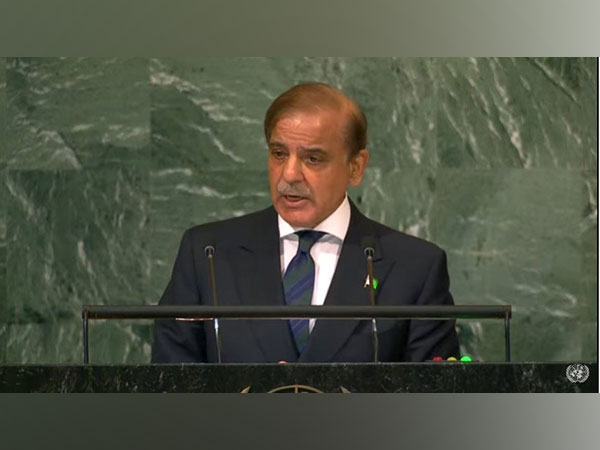

During his remarks at the 77th United Nations General Assembly on Friday, Pakistan’s Prime Minister raised concern over the threat of terrorism emanating from Afghanistan.
Pakistan Prime Minister Shehbaz Sharif said that “Pakistan shares the key concern of the international community regarding the threat posed by the major terrorist groups operating from Afghanistan especially Islamic State- Khorasan (ISIS-K) and Tehrik-e Taliban Pakistan (TTP), as well as Al-Qaeda, East Turkestan Islamic Movement (ETIM) and Islamic Movement of Uzbekistan (IMU),” reported Tolo News.
Sharif’s remarks sparked reactions from the Islamic Emirate and former President of Afghanistan Hamid Karzai. Karzai said in a statement that Afghanistan has been the victim of terrorism and that terrorist sanctuaries have been active under the Pakistani government in the country–and have been used against Afghanistan for decades, reported Tolo News.
Meanwhile, the Ministry of Foreign Affairs of the Islamic Emirate of Afghanistan said that the allegations were baseless.
“Some countries, including the United States and Pakistan, expressed concerns … that threat of terrorism still exists in Afghanistan,” the Ministry of Foreign Affairs said in a statement.
“These concerns, based on incorrect information and sources, are being brought up as the relevant parties are yet to hand over the seat of Afghanistan at the United Nations to its rightful, legal and political owners, the Afghan government,” added the statement.
Speaking at a gathering in Kabul, the acting foreign minister, Amir Khan Muttaqi said that “biased circles in the world call Afghanistan a terrorist haven.”
Sharif also urged the Taliban to respect human rights and women’s rights, reported Tolo News.
Since its ascent to power in Kabul, the Islamic group imposed policies severely restricting basic rights–particularly those of women and girls.
According to Human Rights Watch (HRW), the Taliban dismissed all women from leadership posts in the civil service and prohibited girls in most provinces from attending secondary school.
Taliban decrees prohibit women from travelling unless accompanied by a male relative and require women’s faces to be covered in public–including women TV newscasters.
The Taliban have also censored, limited critical reporting, and beaten journalists. Taliban forces have carried out revenge killings and enforced disappearances of former government officials and security force personnel. They have summarily executed people deemed affiliated with the Islamic State.
Armed groups linked to the Afghan branch of the Islamic State have carried out bombings targeting ethnic Hazaras, Afghan Shias, Sufis, and others, killing and injuring hundreds.